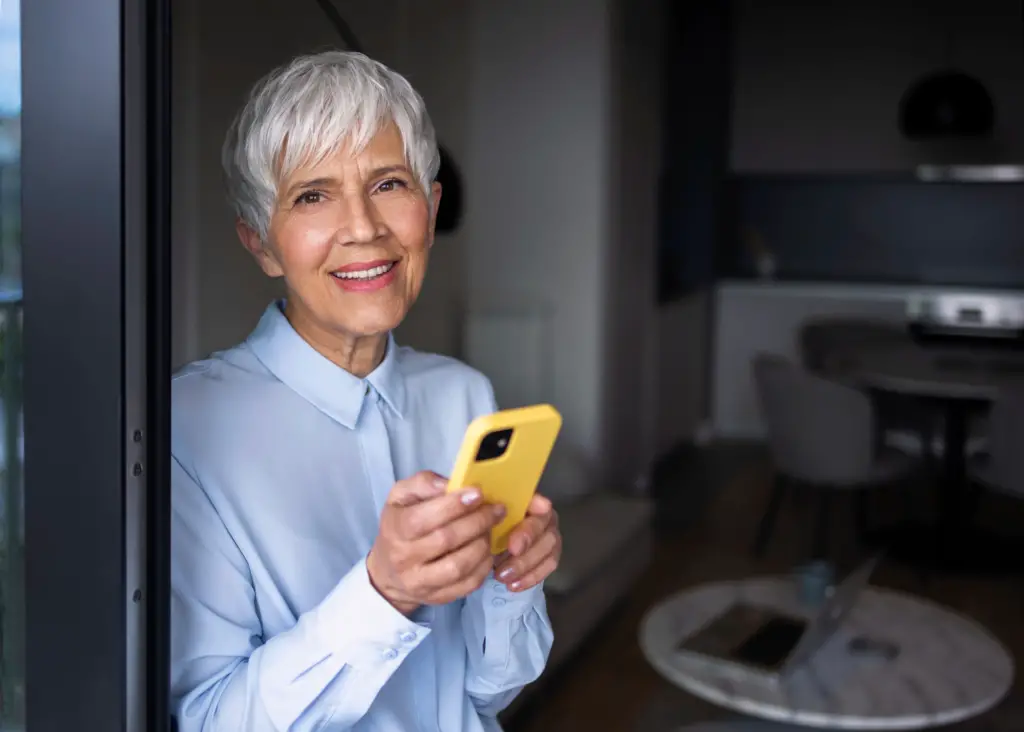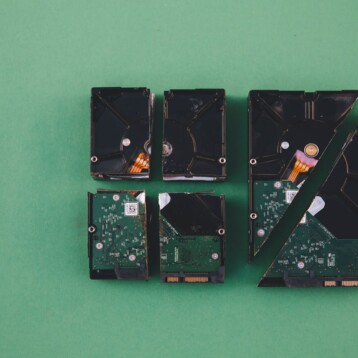
Image by Freepik
Mobile phones, once deemed a luxury, are now a necessity. As retirees seek new activities and ways to stay connected, smartphones provide a crucial link to the world. But they offer other benefits than just a means to communicate. These devices are lifelines to maintaining health, staying socially active, and participating in critical activities like clinical trials.
Recognizing smartphones’ potential to enhance participation in clinical trials opens new avenues for better health outcomes and richer, more inclusive data.
The Growing Trend of Smartphone Use Among Seniors
The adoption of smartphones among seniors has seen a significant uptick in recent years. Smartphone ownership among adults aged 65 and older in the US has reached 76 percent as of 2023. This growing trend underscores the increasing comfort and reliance of seniors on these devices for various aspects of their lives. What contributes to the ever-increasing adoption among older adults? Here are some reasons:
Increased Accessibility and Usability
User-friendly interfaces have become crucial in making smartphones more accessible to seniors. Apple phone deals allow older adults to avail of mobile devices rich in features they can use for everyday needs.
Most mobile units can come with voice-activated assistants, which further enhance usability. These devices allow seniors to interact with them without needing to navigate complex menus.
Health-tracking Capabilities
Beyond communications, older adults benefit from numerous health-tracking features. The Apple Health app, for example, allows users to monitor vital signs, physical activity, and other health metrics. Studies have found that mobile health can detect irregular heartbeats or other health anomalies, prompting timely medical intervention.
Researchers can also integrate these health-tracking capabilities into clinical trial protocols to streamline data collection and management. A study demonstrated how real-time data collection through smartphones can improve the accuracy and reliability of clinical trial results. Researchers can gather more comprehensive and precise data by continuously monitoring participants’ health metrics.
Communication and Social Engagement
Smartphones facilitate more accessible communication with healthcare providers, which is crucial for seniors participating in clinical trials. Video calls and messaging apps enable direct and immediate contact with trial coordinators and medical professionals. They can also utilize social media channels to create support groups, providing trial participants with a sense of community and shared experience.
The Role of Mobile Apps in Clinical Trials
Mobile apps are revolutionizing the conduction of clinical trials, offering numerous benefits for monitoring and data collection.
App-based Monitoring
Mobile apps can monitor medication adherence and symptom reporting, providing real-time data that enhances the accuracy of clinical trial results. These apps can also send reminders and alerts to ensure participants take their medications on time and report symptoms promptly.
Simplified Data Collection
Mobile apps streamline the data collection process. Older adults no longer have to visit the laboratory or research facilities to bring their health data. They can simply do so using their mobile phone’s user-friendly interfaces. This data is automatically synced with trial databases.
Since the data transfer is automatic, it reduces the risk of manual entry errors and allows researchers to access the most up-to-date information.
Enhanced Participant Engagement
Since most mobile devices now come with advanced features, it’s easier for researchers to incorporate innovative features. Reward systems and progress tracking keep participants motivated. Educational content helps them better understand the trial process, increasing compliance and engagement.
For instance, gamification elements within mobile apps can motivate participants to stay engaged in the trial. Such features increase user engagement by as much as 100 percent, with 72 percent saying badges push them to participate more.
Advantages of Using Apple iPhones From Consumer Cellular
Apple iPhones from Consumer Cellular offer several advantages that make them ideal for seniors participating in clinical trials. Here are some of them:
User-friendly Interface
Apple iPhones are renowned for their intuitive design, which is particularly beneficial for seniors. The user-friendly interface features large icons and straightforward navigation. With it, older adults can operate their devices without frustration.
Voice-activated features like Siri further enhance usability by allowing seniors to interact with their phones using simple voice commands. They no longer have to navigate through complex menus.
Health and Fitness Tracking
The Apple Health app integrates seamlessly with iPhones, providing seniors with a comprehensive tool to monitor their health metrics in real-time. This app allows users to track vital signs, physical activity, sleep patterns, and more.
These features are invaluable for seniors involved in clinical trials. The data collected can be shared directly with healthcare providers, facilitating more accurate monitoring and timely interventions. The integration of health-tracking capabilities into clinical trials also supports real-time data collection, enhancing the reliability of trial results.
Reliable Customer Support
Yes, you can get Apple iPhones from other service providers. However, what sets Consumer Cellular apart is its impressive customer service. Their website has easy-to-understand guides and tutorials that help seniors get the most out of their devices. Similarly, their support staff can assist with technical issues that seniors might encounter.
Paving the Way for Senior’s Social Engagement
Smartphones have the potential to revolutionize senior engagement in clinical trials. With their impressive features, these devices can significantly lower the barriers to participation. Integrating these technologies into clinical trials promises more accurate data and improved health outcomes.
Encouraging seniors to use smartphones enhances their connectivity and quality of life and contributes to advancing medical research for all ages.










